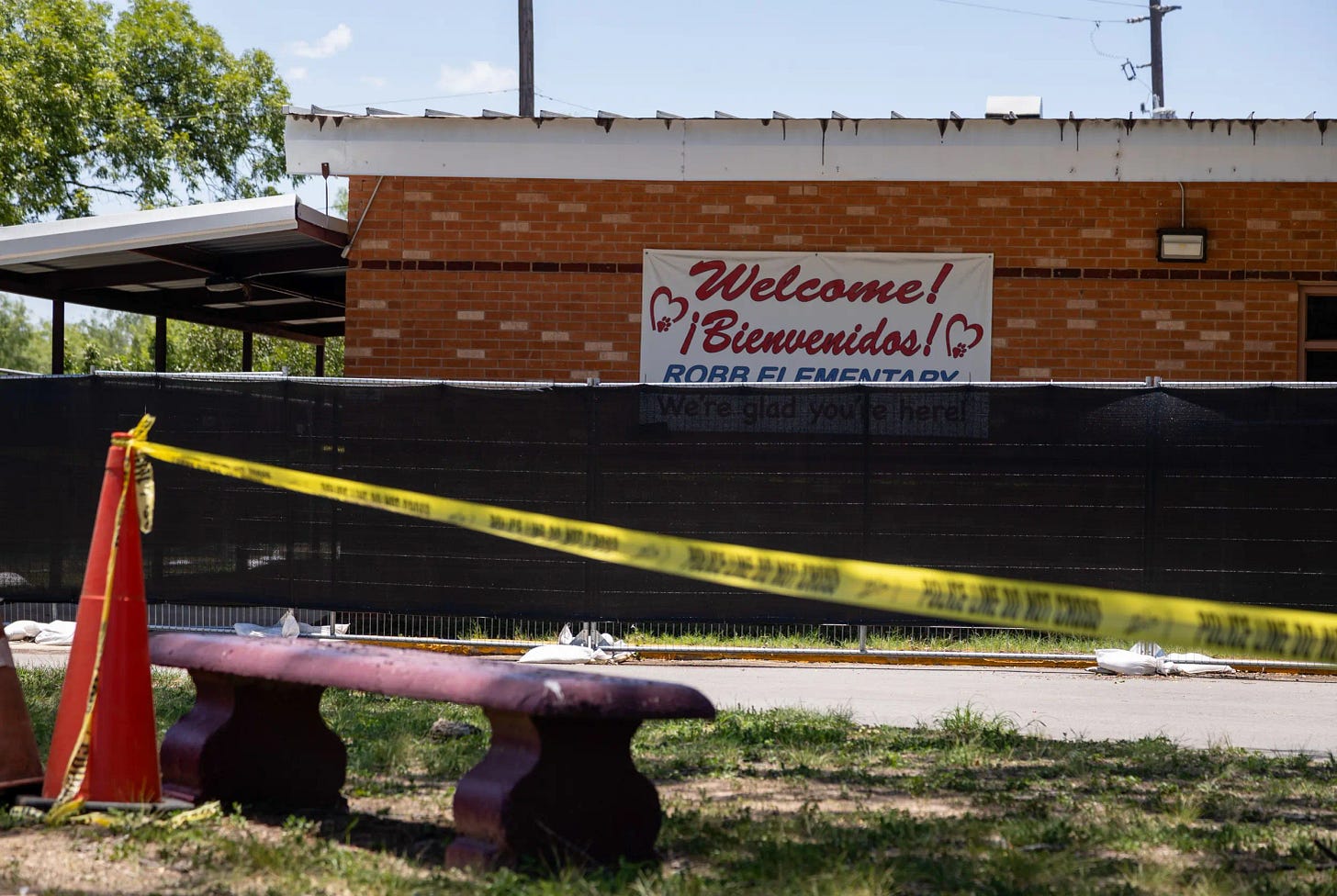⚖️ San Diego Joins Lawsuit Against Trump’s Sanctuary City Crackdown
⚙️ Baja California Pushes for Semiconductor Growth Despite Tariff Uncertainty 📉 US Tariffs on Mexico and Canada Take Effect as Trade War Escalates
🚨 Texas Bill Aims to Strengthen Law Enforcement Response to Mass Shootings
By James Barragán, The Texas Tribune.- Former Uvalde Mayor and now state rep. Don McLaughlin has introduced House Bill 33, designed to prevent police failures like those during the 2022 Uvalde school shooting. To ensure law enforcement coordination, the bill mandates crisis response policies, annual multi-agency active shooter drills, and mutual aid agreements.
McLaughlin, a Republican, does not support raising the age to buy semi-automatic rifles, focusing instead on police preparedness. The bill requires tactical equipment like bulletproof shields and breaching tools, mental health training for first responders, and preliminary public reports within 60 days of a mass shooting.
Speaker Dustin Burrows has prioritized the bill, increasing its likelihood of passage. The Uvalde massacre exposed systemic failures, with nearly 400 officers waiting more than an hour before acting. McLaughlin says the bill will ensure “no confusion, no delay—only immediate, decisive action to save lives.”
📉 US Tariffs on Mexico and Canada Take Effect as Trade War Escalates
By Josh Boak, Paul Wiseman, and Rob Gillies, Associated Press.— President Donald Trump’s 25% tariffs on imports from Mexico and Canada took effect Tuesday, along with a 10% duty on Canadian energy products, sparking retaliatory measures and economic concerns.
Canada announced $107 billion in counter-tariffs, while Mexico has yet to specify its response. Meanwhile, China doubled its tariffs on U.S. farm exports and added restrictions on American companies.
Trump insists tariffs will boost domestic production, but economists and businesses warn of higher inflation and supply chain disruptions. Republican lawmakers and trade experts express concern over the unpredictability of the trade policies, with fears of further tariffs on the EU, India, and key industries.
“It’s chaotic... we don’t know what the president will do,” said trade expert Michael House. Markets brace for volatility as global trade tensions intensify.
⚙️ Baja California Pushes for Semiconductor Growth Despite Tariff Uncertainty
Sandra Dibble, Voice of San Diego.— Baja California is ramping up efforts to attract semiconductor companies, aiming to build a high-tech workforce despite looming U.S. tariffs.
📌 Key Developments:
CETYS Universidad in Tijuana is training engineers in semiconductor technology, with companies like Qualcomm already recruiting students.
Qualcomm, Skyworks (Mexicali), and Infineon (Tijuana) now operate in Baja, signaling growth in the semiconductor sector.
The U.S.-Mexico Foundation for Science identified Baja as a top region for semiconductor expansion, but infrastructure upgrades are needed.
Mexico plans to invest in semiconductor development regardless of U.S. policies.
🛑 Maquiladora Industry Braces for Trump’s Tariffs
Manufacturers in Tijuana fear rising costs and uncertainty in investment due to Trump’s 25% tariffs on Mexican imports.
Medical device exports may see price hikes, potentially impacting hospitals and healthcare providers in the U.S.
Tijuana’s maquiladora workforce shrank by 13,000 since last year, partly due to industry restructuring.
⚡ The Big Picture:
While Baja California bets on semiconductors, uncertainty over U.S. tariffs and economic policy poses challenges for manufacturers and trade relations.
⚖️ San Diego Joins Lawsuit Against Trump’s Sanctuary City Crackdown
David Garrick, The San Diego Union-Tribune.— San Diego has joined a coalition of cities suing the Trump administration to block its attempt to withhold federal grants from sanctuary cities.
City Attorney Heather Ferbert said the lawsuit—initially filed by San Francisco and Santa Clara County—is essential to protecting millions in federal law enforcement funding for crime control, forensic evidence processing, and task forces in San Diego.
Trump’s attempt to punish non-cooperative cities has been challenged as unconstitutional, with courts blocking similar actions in 2017.
🔹 “We won’t back down,” Ferbert said.
🔹 The lawsuit now includes 16 cities, including Oakland, Sacramento, Seattle, and Portland.
🔹 San Diego now has a streamlined process for joining lawsuits against federal policies threatening city funding and residents' rights.
With local governments standing firm, the legal battle over federal immigration enforcement intensifies.
🔫 Supreme Court Skeptical of Mexico’s Lawsuit Against U.S. Gun Makers
Abbie VanSickle, The New York Times.— The U.S. Supreme Court appeared unconvinced by Mexico’s attempt to hold U.S. gun manufacturers liable for cartel violence, questioning whether the lawsuit could bypass a 2005 federal law shielding firearm companies from liability.
📌 Key Takeaways:
Mexico sued U.S. gun makers for $10 billion, arguing they knowingly fuel cartel violence by marketing and supplying firearms that are trafficked into the country.
U.S. justices, including Brett Kavanaugh and Samuel Alito, raised concerns about the broad implications, fearing a precedent where manufacturers of other legal products—like cars and pharmaceuticals—could be held accountable for illegal misuse.
Justice Alito countered Mexico’s argument, asking if the U.S. could sue Mexico for drug trafficking costs, highlighting a perceived "one-way street" in accountability.
Gun makers argue they are protected under the Protection of Lawful Commerce in Arms Act (2005), which blocks lawsuits against firearm manufacturers for crimes committed with their products.
Mexico cites evidence that 70-90% of crime scene firearms in the country originate in the U.S., and that some U.S. gunmakers design weapons that appeal specifically to Mexican buyers, including models engraved with Mexican revolutionary symbols.
⚖️ What’s Next?
A ruling is expected in late 2025, but justices seem poised to dismiss the case, dealing a blow to Mexico’s legal strategy against U.S. gun manufacturers.
The case highlights growing tensions between the U.S. and Mexico as Trump’s administration imposes tariffs and increases pressure on Mexico over cartel violence.







